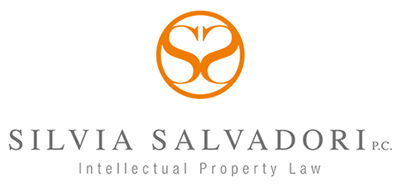In 2001, the U.S. Patent and Trademark Office (USPTO) issued a written description guideline in which it specified that one of skill in the art would have recognized that the spectrum of antibodies which bind to antigen X were implicitly disclosed as a result of the isolation of antigen X.

{1:35 minutes to read} On July 11, 2016, the United States Patent & Trademark Office (USPTO) initiated a pilot program called The Post-Prosecution Pilot Program (P3). Under this program, once an applicant files an after final response, a panel of examiners, including the examiner of record, will conduct a conference with the applicant to review […]
{1:35 minutes to read} On April 8, 2016, the United States Court of Appeals, Federal Circuit, decided Genetic Technologies Limited v. Merial L.L.C., Bristol-Myers Squibb Company. The issue of this case related to the discovery that, in human DNA, certain coding alleles are always linked with certain non-coding alleles. Thus, searching for the non-coding sequences corresponding […]
{1:40 minutes to read} In evaluating the case Magna Electronics, Inc. v. TRW Automotive Holdings Corp., I pose an important question: Is this the end of the patent term adjustment? What are the facts of the case? The patent at issue (U.S. Patent No. 7,339,149, hereinafter “the ‘149 patent”) was filed November 16, 1999, by […]
{2:15 minutes to read} In Avid Technology, Inc. v. Harmonic, the Federal Circuit found that Harmonic did not infringe on the patent and that the district court—based on a statement made during the prosecution of the underlying patent—had erred in construing a claimed term too narrowly. During prosecution, to distinguish the claimed subject matter over […]
{3:30 minutes to read} In the recently decided case In re Urbanski, the Federal Circuit Court upheld the decision of the United States Patent & Trademark Office’s Trial and Appeal Board, which had found obvious the claims of Urbanski’s patent application. Urbanski had argued unsuccessfully that the cited references taught away from their combination. However, […]
{3 minutes to read} The United States Patent & Trademark Office (USPTO) is considering changing the rules for filing an Information Disclosure Statement (IDS). The current rules require: (1) a certification or the payment of a fee for filing an IDS after a first office action on the merits; (2) a certification and the payment […]
{2:30 minutes to read} The Patent Trial and Appeal Board of the United States Patent and Trademark Office (USPTO) has just announced another new pilot program designed to reduce the backlog of ex parte appeals waiting to be heard by the Board. It will allow small or micro-entity appellants with only a single appeal pending […]
{3:45 minutes to read} The United States Patent and Trademark Office (USPTO) has recently announced a change in the way corrections of foreign priority claims are handled. Previously, foreign priority or domestic benefit claims had to be submitted in a timely manner to allow for publication of patent applications at 18 months from the earliest […]
What happens to the patent term extension in patents that are terminally disclaimed? The Hatch-Waxman Act establishes a patent term extension for patents that are related to certain products subject to regulatory delays that could not be marketed prior to regulatory approval. What happens if, during the prosecution, the applicant files a terminal disclaimer that […]